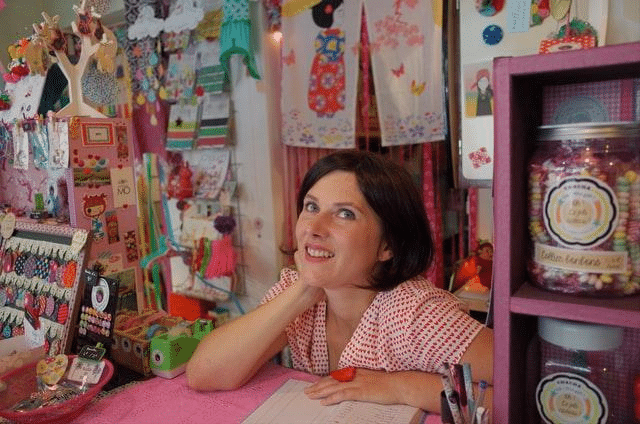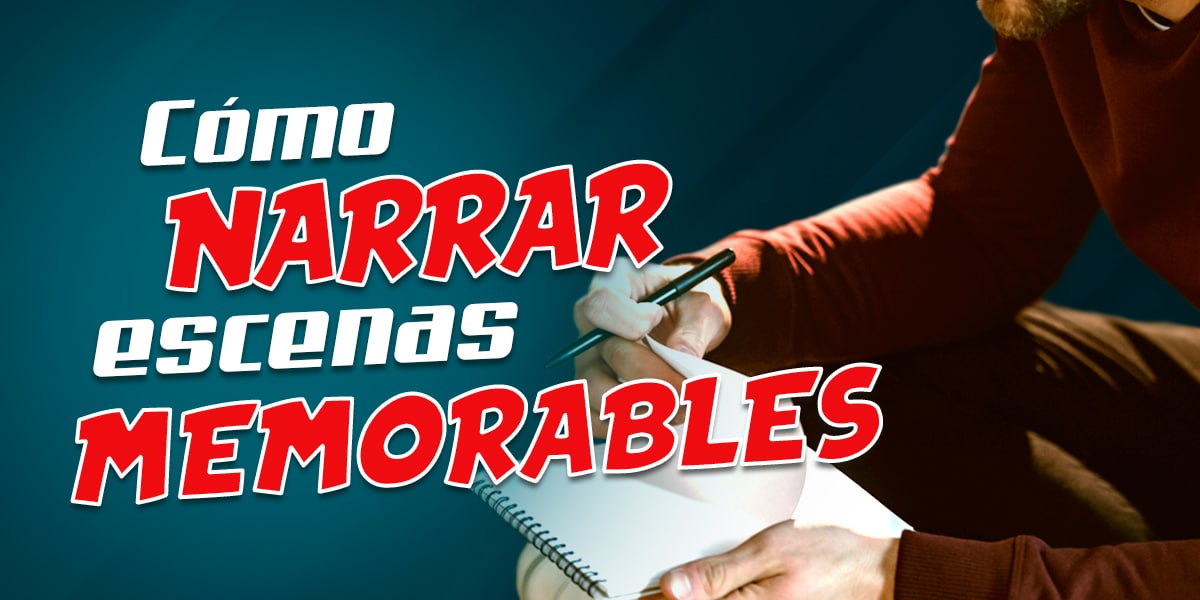5 geniales tips para potenciar tus habilidades narrativas en cómics e ilustración
¿Alguna vez te has preguntado por qué algunas historias te atrapan desde la primera viñeta, mientras que otras parecen carecer de chispa? La clave está en cómo manejas la información en tu narrativa visual. En este artículo, te revelaremos 5 técnicas asombrosas para elevar tus habilidades narrativas al siguiente nivel, transformando tus páginas planas en experiencias visuales cautivadoras que mantendrán a tus lectores pegados a cada viñeta. Prepárate para descubrir cómo el control magistral de la información puede generar suspenso, intriga, admiración y mucho más. ¡Sigue leyendo y desbloquea el potencial oculto de tus historias!
Por Joseph Jacobs
El poder de la información en la narrativa visual
Muchas veces, las páginas que dibujamos resultan tan planas como las hojas que las contienen. La composición de página es correcta, la anatomía está bien, y el entintado es claro. Sin embargo, algo falta. ¿Por qué parece que en la historia no sucede nada? ¿Te has vuelto una persona aburrida? Quizá, descuidas algo muy importante: lo que cuentas vale tanto como la forma en que lo haces.
Contrario a lo que muchos piensan, la información no es el enemigo de la emoción. De hecho, es la herramienta más poderosa que tienes para crear conexiones emocionales con tus lectores. Imagina por un momento que estás leyendo un cómic y de repente te enteras de que el protagonista ha ganado la lotería o que un ser querido lo ha traicionado. ¿No sentirías una oleada de emociones? La clave está en cómo manejas esa información.
La verdadera magia ocurre cuando aprendes a controlar cuánta información das y en qué momento lo haces. Es como ser el director de una orquesta, donde cada dato es un instrumento que, bien utilizado, crea una sinfonía emocional que resuena con tu audiencia. ¿Quieres llevar tus habilidades narrativas al siguiente nivel? Descubre más aquí y aprende a orquestar emociones a través de tus viñetas.
1. Revela información para generar sorpresa: El arte de lo inesperado

Photo by Marc Kleen on Unsplash
https://unsplash.com/photos/JI0oO6uv5z0
Imagina que tienes que contar una historia aparentemente simple: un bombero sale de su cuartel, apesadumbrado, y cruza la calle para entrar en una tienda donde la dependienta es la única persona que le levanta el ánimo. Podrías contarlo de forma lineal, comenzando con un plano general del cuartel de bomberos, seguido del hombre cruzando la calle y entrando en la tienda. Pero, ¿no crees que para cuando llegues a mostrar la sonrisa de la chica, tu lector ya estará bostezando?
Aquí es donde entra en juego el poder de la revelación sorpresiva. En lugar de seguir el orden cronológico, ¿qué tal si comienzas la página directamente en la tienda? Muestra a la chica atendiendo como cualquier otro día, cuando de repente su rostro se ilumina. El bombero entra, ella sonríe, pero al ver su expresión apesadumbrada, su semblante cambia a preocupación. Es entonces cuando él explica: “Vengo del cuartel de bomberos”.

Photo by Remy Baudouin on Unsplash
https://unsplash.com/photos/IxgPCAUSaOM
Esta forma de narrar no solo es más dinámica, sino que también crea un gancho emocional inmediato. El lector se preguntará: ¿Por qué está triste el bombero? ¿Qué relación tienen estos dos personajes? Al revelar la información de manera inesperada, generas curiosidad y mantienes al lector enganchado.
La clave está en dosificar la información. No lo cuentes todo de golpe, pero tampoco seas tan críptico que tu historia se vuelva incomprensible. Piensa en cada viñeta como una pieza de un rompecabezas que vas entregando estratégicamente a tu lector. Haz clic aquí para explorar técnicas avanzadas de narración visual y aprende a crear secuencias que sorprendan y cautiven a tu audiencia.
2. Oculta información para generar intriga: El poder del misterio

Photo by Abigail Keenan on Unsplash
https://unsplash.com/photos/l2JpNQF_qDc
¿Alguna vez te has preguntado por qué algunas historias te mantienen despierto hasta altas horas de la noche, incapaz de dejar de pasar páginas? El secreto está en el arte de ocultar información estratégicamente. Contrario a lo que muchos piensan, esto no se limita solo a las historias de misterio; es una técnica poderosa que puede elevar cualquier género narrativo.
Imagina una escena donde tu heroína sube las escaleras para hablar con su severa tía. Podrías simplemente mostrar la conversación donde la tía le prohíbe tomar clases de equitación. Pero, ¿qué pasaría si antes de que la sobrina termine de subir la escalera, mostramos a la tía en su habitación, sosteniendo un retrato de su hermana y suspirando profundamente?
Este pequeño detalle, aparentemente inconexo, planta la semilla de la intriga en la mente del lector. ¿Qué relación tiene esa foto con la prohibición de montar a caballo? ¿Qué secreto esconde la tía? De repente, una simple discusión familiar se convierte en un misterio que el lector querrá resolver.
La clave está en encontrar el equilibrio perfecto entre lo que revelas y lo que ocultas. Demasiada información puede hacer tu historia predecible, mientras que muy poca puede frustrar al lector. El objetivo es crear un camino de migas de pan que el lector quiera seguir ansiosamente.
¿Quieres dominar el arte de la intriga visual? Ingresa aquí para perfeccionar tus habilidades narrativas y aprende a crear misterios visuales que mantengan a tus lectores en vilo hasta la última viñeta.
3. Adelanta información para generar suspenso: La técnica Hitchcock

Photo by bimo mentara on Unsplash
https://unsplash.com/photos/DM5LAuKxJXs
Alfred Hitchcock, el maestro indiscutible del suspenso, nos legó una lección invaluable: el verdadero suspenso no nace de la falta de información, sino de dar al espectador (o en nuestro caso, al lector) información que los personajes desconocen. Esta técnica, aparentemente contradictoria, es la clave para crear momentos de tensión que mantendrán a tu audiencia al borde de sus asientos.
Imagina que quieres contar la historia de un estudiante cuya bicicleta ha sido saboteada por sus compañeros de clase. La forma menos efectiva sería narrar los eventos desde su perspectiva: sale del colegio, nota risas extrañas, pedalea por la ciudad y, de repente, no puede frenar ante un camión que aparece. Para cuando llegues a ese momento crítico, es posible que tu lector ya haya perdido el interés.
En cambio, aplica la técnica Hitchcock: muestra primero a los estudiantes cortando los frenos de la bicicleta. Luego, sigue al protagonista en su recorrido aparentemente normal. Cada esquina que dobla, cada cuesta que baja, se convierte en un momento de tensión para el lector, que sabe lo que el personaje ignora. El suspenso se construye no por lo que no sabemos, sino por lo que sí sabemos y tememos que suceda.
Esta técnica no solo se aplica a situaciones de peligro físico. Puede usarse en cualquier escenario donde el conocimiento previo del lector cree anticipación. Imagina mostrar a un personaje preparando una fiesta sorpresa, y luego seguir al homenajeado en su rutina diaria, acercándose inevitablemente al lugar de la sorpresa. La emoción surge de la anticipación, no de la sorpresa en sí.
¿Listo para elevar la tensión en tus narrativas? Explora aquí técnicas avanzadas de suspenso visual y aprende a crear secuencias que mantengan a tus lectores conteniendo la respiración en cada viñeta.
4. Disimula información para generar admiración: El arte del engaño noble
En el mundo de la narrativa visual, especialmente en géneros como el policial o el misterio, existe un delicado equilibrio entre mantener al lector intrigado y no hacerlo sentir engañado. La clave está en disimular la información crucial entre una multitud de datos aparentemente irrelevantes. Es como esconder una aguja en un pajar, pero asegurándote de que el lector tenga todas las herramientas para encontrarla si presta suficiente atención.
Tomemos como ejemplo un pasaje del cuento policial de Jorge Luis Borges, donde el detective Lönnrot investiga un extraño asesinato ritual:
“De esa erudición lo distrajo, a los pocos días, la aparición del redactor de la Yidische Zaitung. Este quería hablar del asesinato; Lönnrot prefirió hablar de los diversos nombres de Dios; el periodista declaró en tres columnas que el investigador Erik Lönnrot se había dedicado a estudiar los nombres de Dios para dar con el nombre del asesino. Lönnrot, habituado a las simplificaciones del periodismo, no se indignó.”
A primera vista, este pasaje parece una digresión erudita, típica de Borges. Sin embargo, más adelante en la historia, descubrimos que esta aparentemente inocua entrevista inspira al asesino para sus próximos crímenes. Borges ha plantado la semilla de la resolución del misterio a plena vista, pero la ha camuflado tan hábilmente que la mayoría de los lectores pasarán por alto su importancia.
Esta técnica no solo se aplica a historias de detectives. En cualquier género, puedes sembrar pistas sutiles sobre el desarrollo futuro de la trama o las motivaciones ocultas de los personajes. El truco está en presentar esta información de manera que parezca irrelevante o incluso tediosa en el momento, pero que cobre un nuevo significado a la luz de revelaciones posteriores.
Al dominar esta técnica, creas una experiencia de lectura en capas. En una primera lectura, la historia fluye sin obstáculos. Pero en relecturas posteriores, el lector descubre con asombro todas las pistas que estaban allí desde el principio, generando una profunda admiración por tu habilidad narrativa.
¿Ansioso por dominar el arte del engaño noble en tus narrativas? Descubre aquí cómo crear capas de significado en tus historias y aprende a tejer tramas que recompensen la atención y la relectura de tus seguidores más dedicados.
5. Derrocha información para generar maravilla: Creando mundos vívidos

Photo by Meritt Thomas on Unsplash
https://unsplash.com/photos/zqIOvV-D3JQ
En el vasto universo de la narrativa visual, hay momentos en que menos no es más. Especialmente en géneros como la fantasía, la ciencia ficción o la ficción histórica, el derroche controlado de información puede ser la clave para sumergir al lector en mundos asombrosos y completamente creíbles.
Imagina que retomamos al bombero de nuestro primer ejemplo. Su simple acto de cruzar la calle podría transformarse en una experiencia fascinante si ocurriera en un planeta alienígena, en una pradera mágica llena de criaturas fantásticas, o incluso en una calle aparentemente común del sur de Estados Unidos durante la Gran Depresión. La diferencia radica en los detalles que decides mostrar.
En estos casos, más es definitivamente más. Cada viñeta se convierte en una oportunidad para revelar aspectos únicos de tu mundo. En un escenario de ciencia ficción, podrías mostrar vehículos antigravitatorios flotando sobre la calle, alienígenas de formas extrañas realizando tareas cotidianas, o edificios que desafían las leyes de la física tal como las conocemos. En un entorno de fantasía, quizás la calle esté pavimentada con gemas que cambian de color, árboles parlantes que saludan a los transeúntes, o criaturas mitológicas que se mezclan casualmente con la población.
El truco está en encontrar elequilibrio entre la maravilla y la coherencia. Cada detalle que añades debe contribuir a la riqueza del mundo que estás creando, pero también debe tener sentido dentro de su propia lógica interna. No se trata solo de acumular elementos fantásticos, sino de tejer una tapicería visual que invite al lector a perderse en ella.
Por ejemplo, si estás creando un mundo steampunk ambientado en la época victoriana, podrías mostrar calles iluminadas por farolas de gas que cambian de color según el estado de ánimo de los transeúntes, carruajes impulsados por mecanismos de relojería intrincados, o vendedores ambulantes ofreciendo pociones embotelladas que prometen curar desde el mal de amores hasta la mala suerte en los negocios.
La clave está en la consistencia y la atención al detalle. Cada elemento que introduces debe tener un propósito, ya sea para avanzar en la trama, desarrollar un personaje o simplemente enriquecer el mundo que has creado. ¿Quieres aprender a crear mundos que dejen a tus lectores maravillados? Ingresa aquí para descubrir técnicas de worldbuilding visual que te ayudarán a dar vida a tus ideas más imaginativas.
Recuerda, el objetivo no es solo impresionar con la cantidad de detalles, sino crear un mundo tan vívido y coherente que el lector sienta que podría dar un paso y entrar en él. Cuando logras esto, cada página se convierte en una invitación a la exploración, y tus lectores querrán volver una y otra vez, descubriendo nuevos detalles en cada visita.
Conclusión: Dominando el arte de la narración visual
A lo largo de este artículo, hemos explorado cinco poderosas técnicas para elevar tus habilidades narrativas en el mundo del cómic y la ilustración. Desde la revelación sorpresiva de información hasta el derroche controlado de detalles para crear mundos maravillosos, cada una de estas estrategias te ofrece una herramienta única para capturar la atención de tus lectores y mantenerlos enganchados página tras página.
Recuerda, la clave está en el control maestro de la información. Ya sea que estés generando suspenso al estilo Hitchcock, sembrando pistas sutiles para futuras revelaciones, o construyendo mundos fantásticos llenos de detalles asombrosos, tu objetivo siempre debe ser crear una experiencia de lectura rica y satisfactoria.
La práctica constante y la experimentación son fundamentales para perfeccionar estas técnicas. No temas jugar con diferentes estilos y enfoques hasta encontrar tu voz única como narrador visual. ¿Listo para llevar tus habilidades narrativas al siguiente nivel? Explora aquí recursos adicionales y ejercicios prácticos que te ayudarán a dominar estas técnicas y descubrir tu propio estilo narrativo.
Recuerda, cada viñeta es una oportunidad para contar una historia, para revelar un secreto, para sorprender, intrigar o maravillar a tu lector. Con estas herramientas en tu arsenal, estás listo para crear cómics e ilustraciones que no solo se vean bien, sino que también cuenten historias inolvidables. ¡Es hora de dar vida a tus ideas y cautivar a tu audiencia como nunca antes!






